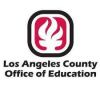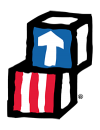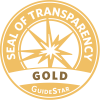Building Partnerships
and Leadership

Best Start Region 1
Best Start Region 1 (BSR1) is a place-based, community-building movement made up of over 1,000 community residents and cross-sector organizational partners who work together to affect change in their region. With an initial investment from First 5 LA, this region includes the communities of East Los Angeles, Metro Los Angeles, South El Monte/El Monte, and Southeast Los Angeles.
BSR1 is driven by the Community Transformation Collective (CTC) within Para Los Niños. The CTC supports community members to transform systemic conditions so that children, families, and neighborhoods can thrive. This systems change approach builds and cultivates transformational partnerships for the region to co-design, implement, communicate, mobilize, and evaluate strategies.
Sign up for our bi-monthly newsletters to learn more about our impact, systems change efforts, and activities focused on our communities using the button below!
United Mental Health Promoters Program
Funded by the LA County Department of Mental Health
The Promoters Program aims to reduce mental health stigma throughout Los Angeles County — particularly in historically underserved cultural and linguistic communities — by increasing awareness about mental health issues, removing barriers, and improving timely access to culturally and linguistically appropriate resources.
Mental Health Promoters
Serve as a bridge between the community, the Los Angeles County Department of Mental Health and other human and social service organizations by approaching mental health topics with a culture-specific lens.
Services Provided:
- Outreach and Engagement
- Educational Workshops
- Linkage and Referrals
- Program History
In 2011, the Los Angeles County Department of Mental Health started the Promotores de Salud Mental Program as a pilot project to address the high levels of mental health stigma in the Spanish-speaking community. The Health Promoter model and popular education model have been used in the United States and in countries throughout the world to address a variety of health disparities in underserved cultural and linguistic communities.
In 2020, the Los Angeles County Board of Supervisors approved the expansion of the Promoters Program to serve the following additional communities: Black/African Heritage, Asian Pacific Islander, American Indian/Alaska Native, Eastern European/Middle Eastern, LGBTQ+ and Individuals with Physical Disabilities. The expansion of the model into mental health has been an innovative way to increase access to care.
Receiving resources and information from people in the local community has proven effective in building and sustaining trust and resilience among these populations. Promoters empower individuals with accurate information and resources and most importantly instill hope for the future.






